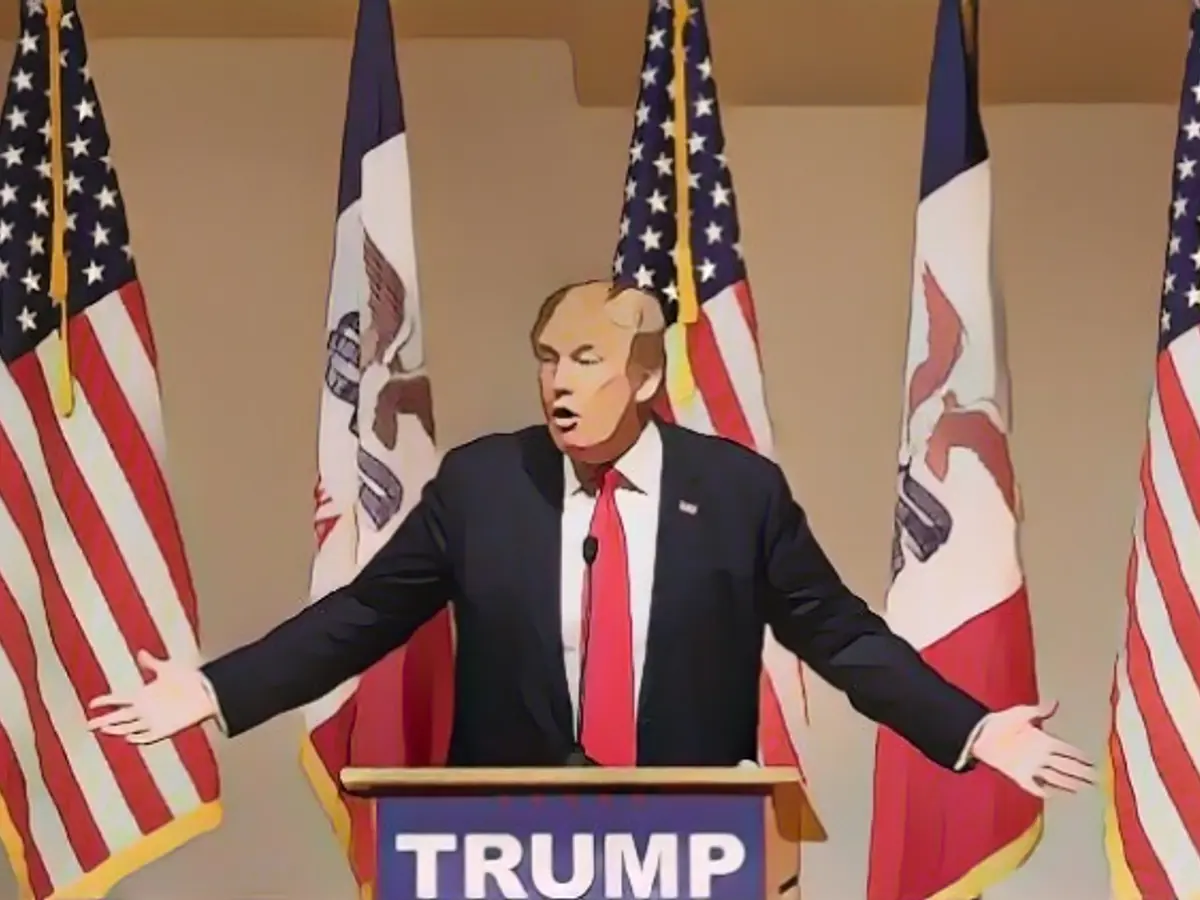Trump defends himself against exclusion in Maine
In less than two weeks, the primaries for the Republican presidential candidacy will begin in the first US states. Former President Trump is now taking legal action against his exclusion in Maine. In the end, the Supreme Court will probably have to decide.
Former US President Donald Trump has taken legal action against his exclusion from the presidential primary in the state of Maine. In their appeal, Trump's lawyers are calling on the Supreme Court of the state in the north-east of the USA to overturn the decision of election supervisor Shenna Bellows. Bellows, who belongs to the Democratic Party, was "biased", they continued. She had acted in an "arbitrary and capricious manner".
Trump was excluded from his party's presidential primaries in Maine at the end of December. In an official document, election supervisor Bellows justified the decision with the Republican's role in the Capitol storming on January 6, 2021. Bellows had stated in the document that Trump was not qualified for the office of president under the 14th Amendment to the US Constitution. The constitutional amendment states that no person may hold public office if they have participated in a "riot or insurrection" against the Constitution after taking an oath to defend it.
On December 19, the Supreme Court of the state of Colorado had already ruled in a sensational decision that Trump should not be allowed to take part in his party's presidential primaries in the state because of his role in the Capitol storming. This decision also referred to Article 14 of the Constitution, but it is not final. The court in Colorado initially put its decision on hold to allow time for an appeal. A statement from the Supreme Court in Washington on the Colorado decision is expected soon, and observers believe that the decision in Maine could also end up before the US Supreme Court.
Proceedings in other states too
If the cases are approved for an appeal in Washington, the country's highest court could be catapulted to the center of the presidential election. This is because any decision on whether Trump was involved in a riot and whether he should be allowed to stand for election could be binding on lower courts across the country. Should the Supreme Court uphold an exclusion decision, this could be dangerous for Trump's presidential ambitions.
Proceedings have also been initiated in other states to have Trump excluded from the primaries. This was rejected in Michigan and Minnesota, while proceedings are still ongoing in Oregon. In California, the electoral officer refused to exclude Trump from the primary on Thursday despite pressure from Democratic party colleagues.
Trump is the overwhelming favorite in the race for the Republican presidential nomination and leads the polls by a large margin. The Republican primaries begin on January 15 in the state of Iowa, with primaries scheduled for March 5 in Maine and Colorado. The winner of the primary will run against Democratic incumbent Joe Biden in the presidential election on November 5, 2024.
Read also:
- Year of climate records: extreme is the new normal
- Precautionary arrests show Islamist terror threat
- UN vote urges Israel to ceasefire
- SPD rules out budget resolution before the end of the year
Despite ongoing legal challenges, former US President Donald Trump's bid for the 2024 US presidential election faces hurdles due to his exclusion from primaries in several states, including Maine. If Trump's lawyers are successful in their appeal to the Maine Supreme Court, it could potentially set a precedent for other states, given the US Constitution's 14th Amendment prohibition against individuals participating in insurrections from holding public office. If the Supreme Court in Washington upholds an exclusion decision, it could jeopardize Trump's ambitions in the 2024 US presidential election, which sees him as the frontrunner for the Republican nomination.
Source: www.ntv.de








